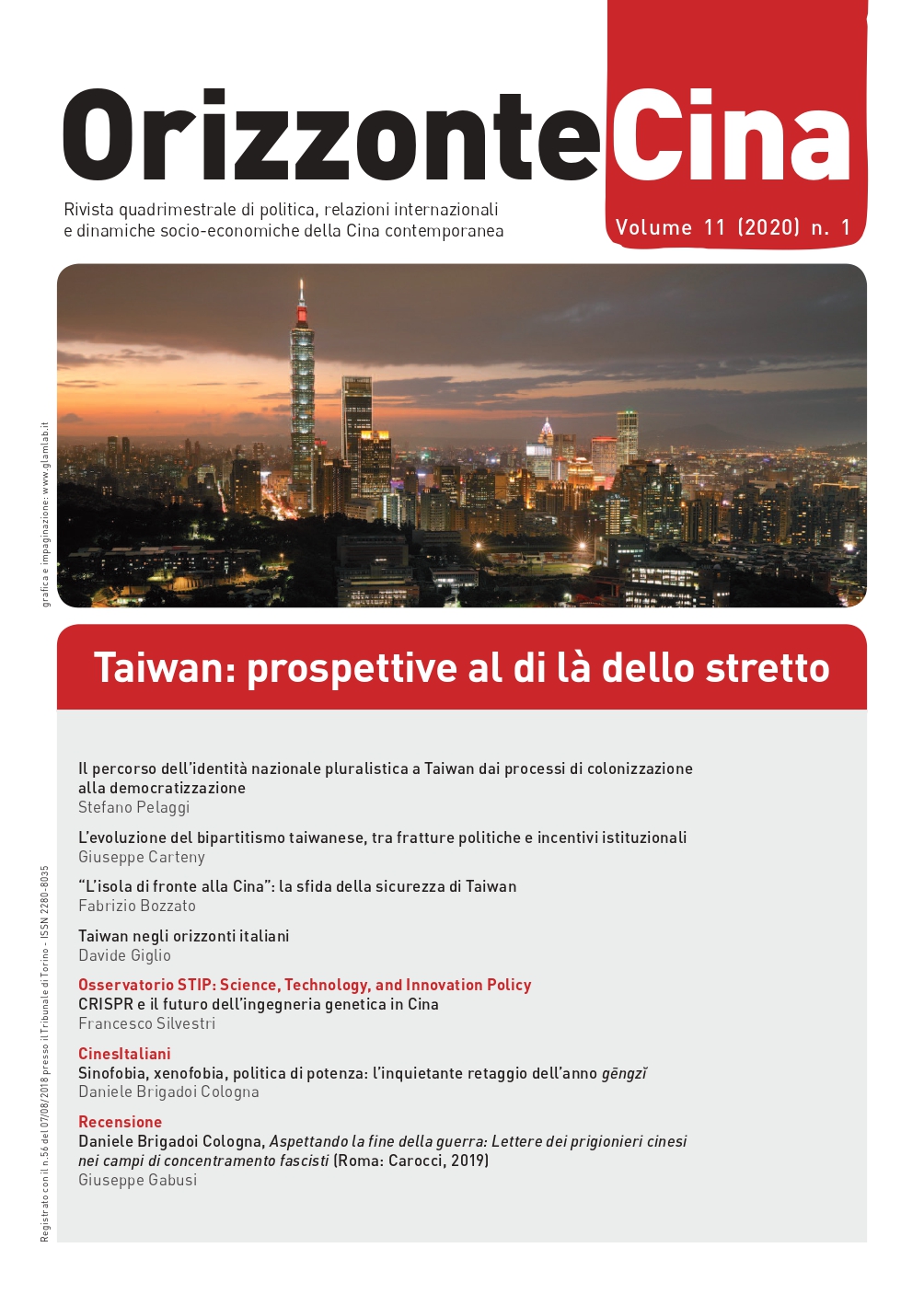Il percorso dell’identità nazionale pluralistica a Taiwan dai processi di colonizzazione alla democratizzazione - The Path to a Pluralistic National Identity in Taiwan from Colonization Processes to Democratization
DOI:
https://doi.org/10.13135/2280-8035/5405Abstract
This article explores Taiwanese national identity, through an analytical excursus of the composite ethnic and linguistic mosaic of the island's inhabitants from 1500 to the present day. The relationship with the Chinese empire and the relative indifference of the Imperial court in Beijing are analysed in the first part. Subsequent Japanese colonization represented the first attempt to align the inhabitants of the island along a new paradigm of cultural uniformity, a hegemonic attempt of colonial nature that encouraged the Taiwanese to look at themselves, through the eyes of the colonizer, as a coherent entity. The ethnic fracture that emerged forcefully upon the arrival of the Kuomintang troops after World War II resulted in a further remoulding of Taiwanese identity. The process of redefining national identity became an essential tool in the electoral contest, in the aftermath of the democratization process of the country.




